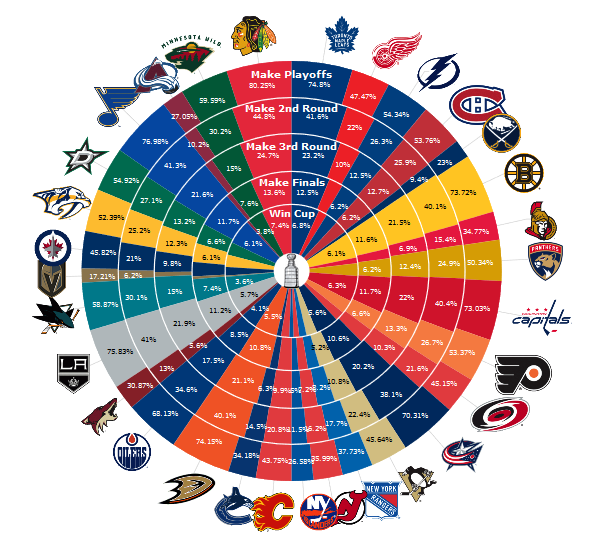This shows a shocking lack of understanding of statistics and parity.
The rangers won 67% of their hockey games in the regular season for example. There were 5 other teams above 60%.
They matched up against carolina and florida who both had 63% winning %s. They were seperated by 3 games. I'd peg both of those series as around 50/50 coin flips.
Every single winner of the cup had some luck involved. Every single winner of the cup was deserving and a great team. Not every single winner of the cup was the best team.
Why do worse regular season teams beat better regular season teams in the playoffs? Because the sample size is 7 f***ing games and the gaps are rarely that big.
If you had an 75% chance to win each game against playoff teams (so realistically about 80% against the whole league which would be a 66 win team) you would have a 75% chance to win the cup. Considering most presidents trophy winners win about 70% of their games in the regular season, which probably translates to about 60-65% of their games against playoff teams. (and frankly it gets lesser as you go later as you are generally on average playing better teams) That team winning 60% of playoff games has a 71% chance of winning each series. to the power of 4 for 4 series is 25%. Presidents trophy winners win about 21%.
Let's go to the rangers. They went 22-17 vs playoff teams. That's a 56% win rate against the average playoff team.
Statistically, a 56% win rate gives you a 63% chance of winning a best of 7 series. Multiply that to the power of 4 and that's a 15.7% chance of winning the cup. Why would I be surprised when a field of 15 beats a field of 1 in a league with so much parity?
View attachment 977280
Now, I won't go too deep and compicated into specific playoff series and odds of playing each seed, average win %, home ice, etc, you could do a lot of math to get to the specifics but a baseline view is good enough


